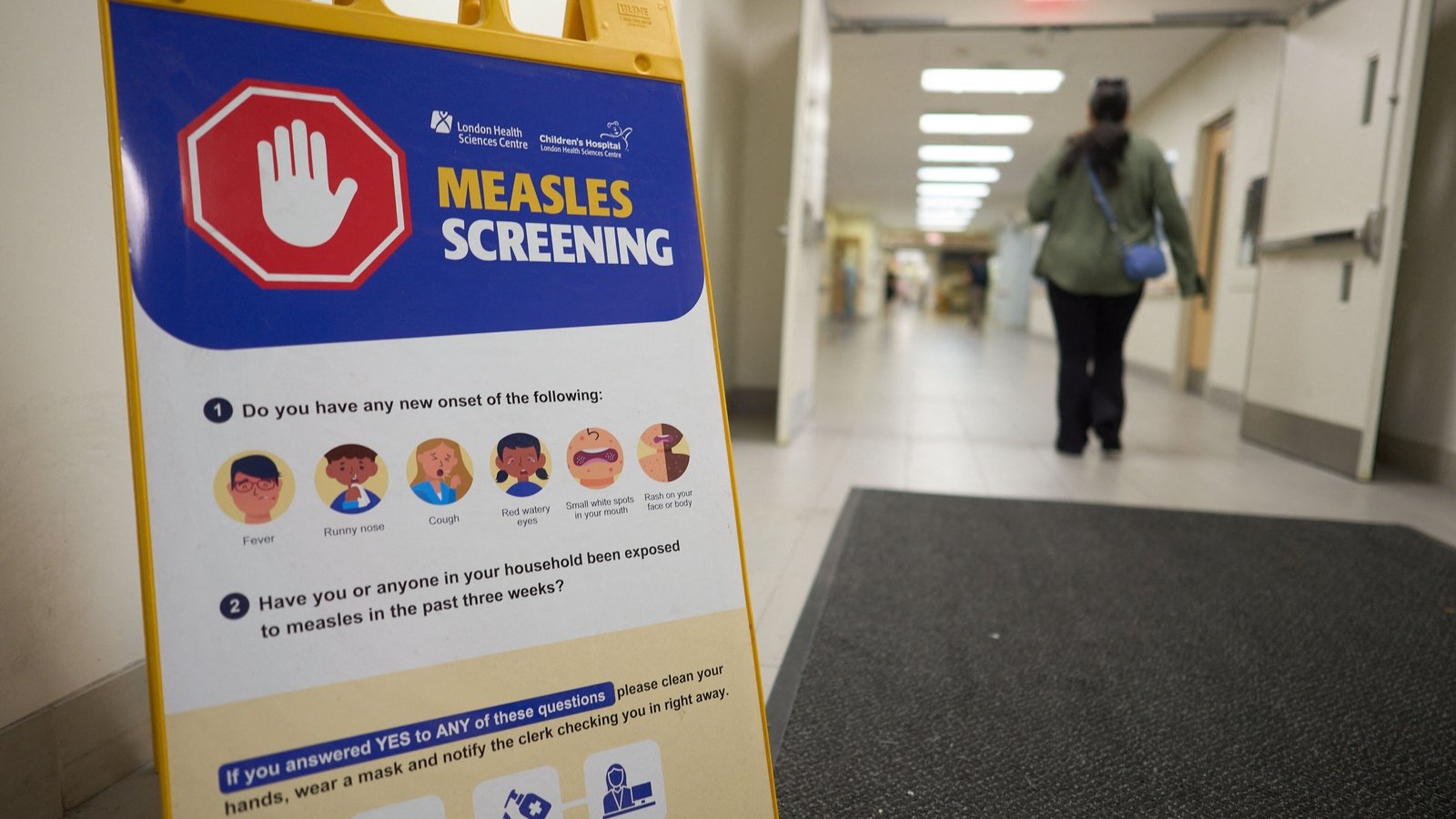Canada has lost its measles elimination status after nearly three decades due to its failure to curb a year-long outbreak, the country’s public health agency has said.
Canada was formally declared measles-free in 1998, an achievement credited to years of consistently high childhood vaccination rates.
But an outbreak that began in the eastern part of the country in October 2024 has spread nationwide, notably among certain groups of Mennonite Christians who have refused to vaccinate their children on religious grounds.
Canada has so far recorded 5,138 measles cases in 2025, with Ontario and Alberta provinces the hardest hit.
Two newborns, born to unvaccinated mothers, have died from the virus.
Health Canada, a government agency, said in a statement that the Pan American Health Organization (PAHO) notified it that the country had lost its elimination status.
The update came after PAHO confirmed “sustained transmission of the same measles virus strain in Canada for a period of more than one year.”
It said that, in response, provincial health ministers were “discussing coordinated actions, including strategies to build trust (in vaccines) through community engagement.”
Health Canada noted that while measles “transmission has slowed recently,” the outbreak has persisted “primarily within under-vaccinated communities.”
The disease is a highly contagious respiratory virus spread through droplets when an infected person coughs, sneezes, or simply breathes.
It causes fever, respiratory symptoms and a rash, but can also lead to serious complications, including pneumonia, brain inflammation and death.

